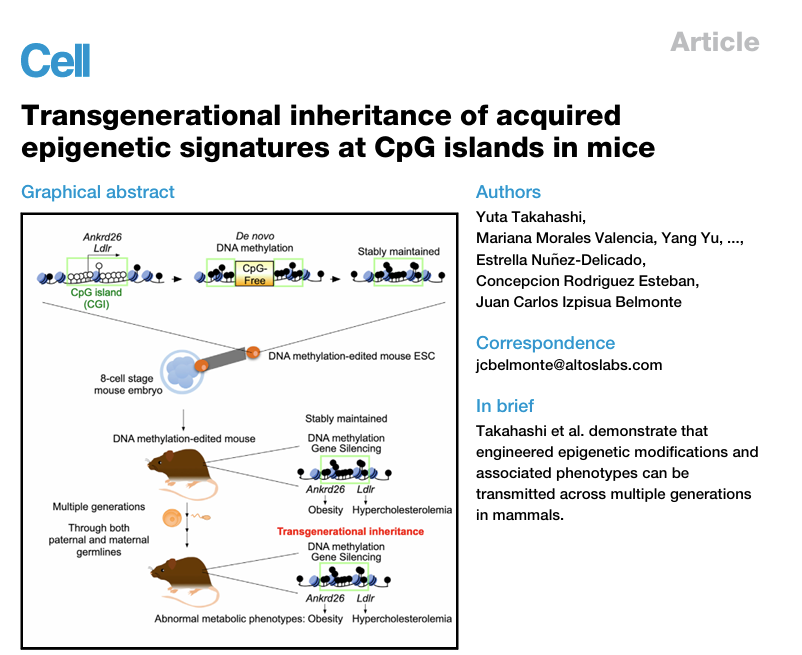June's meeting will be led by Professor Peter Rugg-Gunn and Amy Wilkinson, both from the Babraham Institute. Discussing epigenetic editing of human embryos.
When: Wednesday 11 June, 2025 - 12:30 to 14:30
Where: SB Perham Room, Department of Biochemistry, Sanger Building, 80 Tennis Ct Rd, Cambridge CB2 1GA
If you'd like to join please sign up on Doodle
__________________________________
Peter Rugg-Gunn is a Group Leader and Head of Public Engagement at the Institute, with a research interest in the epigenome during early human development.
Amy Wilkinson began her PhD studies at the Babraham Institute in October 2022. She is interested in the epigenetic and gene regulatory mechanisms governing human embryo development, and in particular, the mechanisms controlling epiblast progression during early post-implantation stages.
Readings for June
These two papers collectively cover the key concepts that Peter and Amy would like to introduce at the start of the session
Transgenerational inheritance of acquired epigenetic signatures at CpG islands in mice
DNA methylation analysis and editing in single mammalian oocytes
Introduction
Much attention has been devoted to genetic editing of human embryos, yet there has been relatively little discussion about epigenetic editing that can alter the activity of genes without changing the DNA sequence. Recent technological developments have demonstrated the feasibility of epigenetic editing in human and animal embryos. In animal studies, some of the introduced epigenetic changes are long-lasting and can even be inherited in offspring.
In this session, we will explore recent scientific developments in epigenetic editing with a focus on their potential future applications and broad consequences in embryology and reproduction. These technologies raise important ethical, regulatory and societal considerations that are conceptually different to those of genetic editing. We will also discuss epigenetic changes that can occur during development in response to changing environmental exposures, including in-vitro culture of embryos as part of assisted reproduction and the in-utero environment, with scope to explore ‘epigenetic-relatedness’ versus ‘genetic-relatedness’ in the context of surrogacy and gamete donation.


